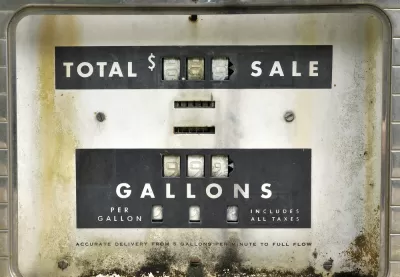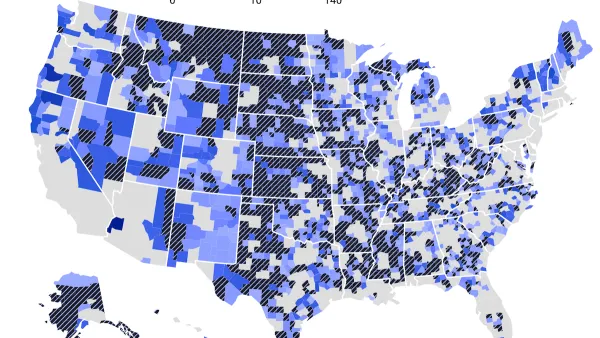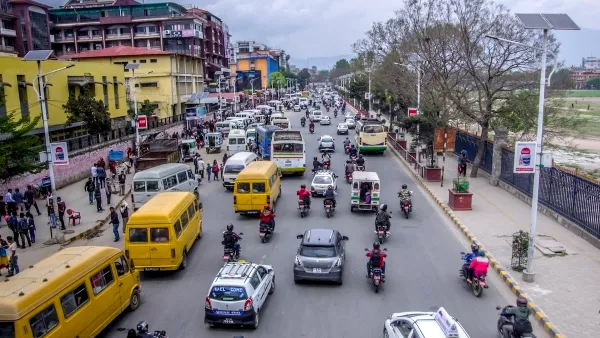It's always good to be wary of wishful thinking, but it's also a good idea to consider of what the world might look like ten to 20 years from now.

Sami Grover writes a speculative piece that pieces together recent news about the growing market for electric vehicles and considers a provocative idea: disruption in the oil industry.
According to Grover, "it only took a 10% cut in coal demand to radically slash the coal industry's credit worthiness," and there's been enough recent news consider the possibility that there might be a similar fate, and sooner rather than later, for the oil industry. He lists the following articles as examples:
- "Smart cars going 100% electric in the US"
- "Sydney Airport orders 40 more electric buses"
- "Vattenfall (a giant Swedish utility) converting entire vehicle fleet to electric"
- "20% of new buses in China are now electric"
Although Grover acknowledges that such reports represent only a "blip" for the oil industry's bottom line, "collectively it won't be long before they really start to add up." Also those stories are all about the adoption of electric technologies at current pricing. The current prices of electric technology will not persist, however. According to Grover, "Wards Auto is reporting on conversations with auto industry insiders who say electric vehicle batteries should be under $100 per kilowatt hour by 2020, and $80 not long after that. That's a figure well below the $125 per kilowatt hour that the Department of Energy set in 2010 as a target for cost parity with internal combustion engines."
Grover concludes by listing other possibilities, besides electrification, that could spell demise of the oil industry's current market dominance.
FULL STORY: Disruption to oil demand may be much closer than you think

Maui's Vacation Rental Debate Turns Ugly
Verbal attacks, misinformation campaigns and fistfights plague a high-stakes debate to convert thousands of vacation rentals into long-term housing.

Planetizen Federal Action Tracker
A weekly monitor of how Trump’s orders and actions are impacting planners and planning in America.

San Francisco Suspends Traffic Calming Amidst Record Deaths
Citing “a challenging fiscal landscape,” the city will cease the program on the heels of 42 traffic deaths, including 24 pedestrians.

Defunct Pittsburgh Power Plant to Become Residential Tower
A decommissioned steam heat plant will be redeveloped into almost 100 affordable housing units.

Trump Prompts Restructuring of Transportation Research Board in “Unprecedented Overreach”
The TRB has eliminated more than half of its committees including those focused on climate, equity, and cities.

Amtrak Rolls Out New Orleans to Alabama “Mardi Gras” Train
The new service will operate morning and evening departures between Mobile and New Orleans.
Urban Design for Planners 1: Software Tools
This six-course series explores essential urban design concepts using open source software and equips planners with the tools they need to participate fully in the urban design process.
Planning for Universal Design
Learn the tools for implementing Universal Design in planning regulations.
Heyer Gruel & Associates PA
JM Goldson LLC
Custer County Colorado
City of Camden Redevelopment Agency
City of Astoria
Transportation Research & Education Center (TREC) at Portland State University
Jefferson Parish Government
Camden Redevelopment Agency
City of Claremont





























